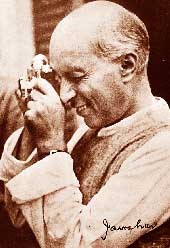 |
Every time elections are announced, I remember my childhood and the years when I first started casting my vote in state and general elections. During successive elections, I am reminded of the early years of Jawaharlal Nehru at the helm of Indian politics. In retrospect, everything appeared to move so slowly in India and it seemed that we would remain a developing country for ever. When one is young, and also when one is not so young, one wants all progress to happen in one’s lifetime. It takes a while to appreciate the difference in the timespan of nations.
It is election time and my thoughts, once again, return to Nehru. What helps in the process is that every so often, either a foreign or an Indian author publishes a scholarly tome on Nehru. This is an extremely valuable service the authors render to remind Indians, of the older as well as the younger generation, of the abiding values of the foundation of our modern nationhood. With the passage of years, the values grow in importance, particularly because, periodically, and lately with growing frequency, revisionist politicians in our country distort historic personalities and events with growing impunity and shrillness.
It was, therefore, a delight to read Shashi Tharoor’s recent book, Nehru: The Invention of India. Tharoor justifies yet another book on Nehru by stating, “Jawaharlal Nehru’s impact on India is too great not to be re-examined periodically. His legacy is ours, whether we agree with everything he stood for or not.” A distinctive feature of the Nehruvian legacy was secularism — his visionary rejection of India’s assorted bigotries and particularisms. The nation should be more grateful now more than ever of the legacy whose fragility as well as resilience have grown with the passage of years.
Tharoor goes on to recall a speech to students of Bombay on May 20, 1928, when Nehru declared, “Much is said about the superiority of our religion, art, music and philosophy. But what are they today? Your religion has become a thing of the kitchen, as to what you can eat and what you cannot eat, as to whom you can touch and whom you cannot touch…. Religion in India will kill that country and its people if it is not subdued.”
Even more true today than it has been since the dawn of independence. Tharoor provides another telling quote, “After Partition, his uncompromising commitment to Indian secularists made him a symbol of security for India’s Muslim and other minorities, the assurance that pluralist India would never be reduced to Hindu India.” Nehru’s noble sentiments have been vilified, distorted and misshaped beyond their original value into contentious political divisiveness, as corrosive as the partitioning of castes, communities and cultures across our geography. Thus, the identity of an Indian beyond each community and religion is in danger of becoming a receding dream. The nightmare that could emerge is beyond contemplation.
Nehruvian socialism continues to remain a favourite whipping topic. Today, not many are ready, even grudgingly, to acknowledge that Nehru laid the foundation of modern industrial and scientific development in India and the spirit of self-reliance amongst a people who had lost their self-confidence and self-esteem through a thousand years of foreign occupation. Immediately after independence, the husbanding of the nation’s depleted and vestigial resources forced the state to occupy the commanding heights of the economy, when private industrial enterprise was minuscule at best.
No matter how retrograde these policies might appear in today’s environment, the fact remains that the very same policies saw newly independent India through those early days of trying to stand on its own feet and reconcile to painfully slow economic growth. That the very same policies would eventually enable India to embark on a regime of reforms and economic transformation is only very grudgingly acknowledged. Thus, although they were not envisioned as such, these same policies eventually enabled India to prepare itself to face the unfolding challenges of today’s market economy.
India may not have withstood the world energy crisis of the Seventies with aplomb and confidence, but withstand it nevertheless it did. It is indeed the same Nehruvian policy formulations which will enable India, one day, to transform itself from a developing to a developed nation. State institutions and economic policies do outlive their utility over time, but they do not disappear into oblivion. What they do is to reappear as reincarnations in tune with the sentiments and realities of the present.
The danger, of course, lies with those in India who have not been able to reconcile themselves to the fact that socialism has outlived its utility. They are not ready to acknowledge that socialism has served its purpose and has provided India, in less than forty years, with an economic base to pursue reforms and become a key player in the world of free markets and trans-border trade. China understood the need to change much earlier, and Russia, reluctantly, later on.
Nehru would have rejoiced to see India progressing rapidly today on a foundation he and his contemporaries laid in the years following independence, but could not have imagined what they had set in motion. Whether it is secularism or economic development, it is worth revisiting those founding principles of Indian nationhood from time to time, and there is no better way of doing so than revisiting the legacy of Nehru. This is particularly important for the growing generation of young Indians and those amongst the older with a short memory span, and especially at a time when revisionism and spin have infected Indian history.









